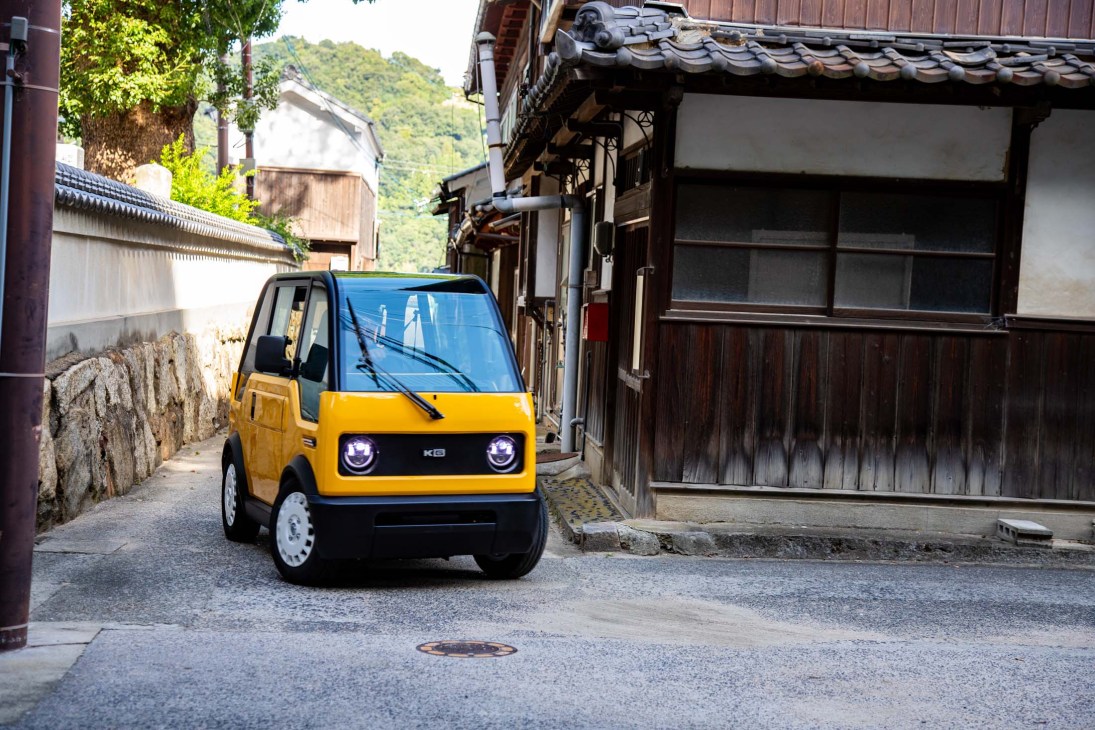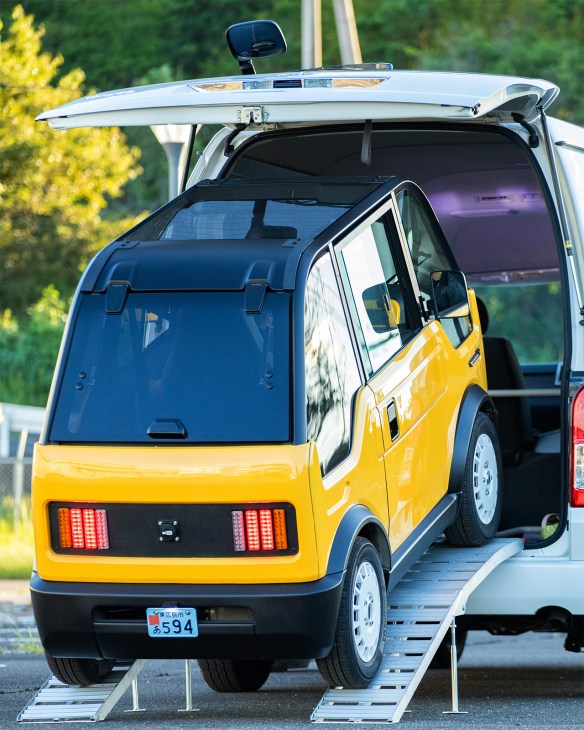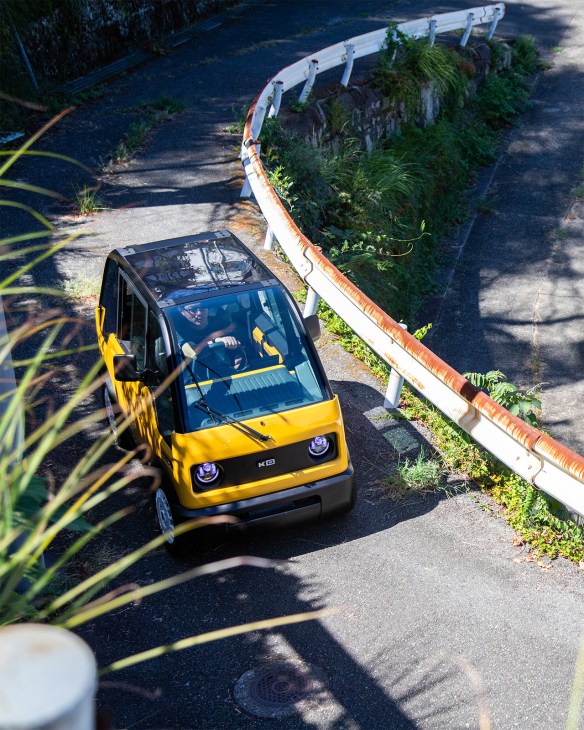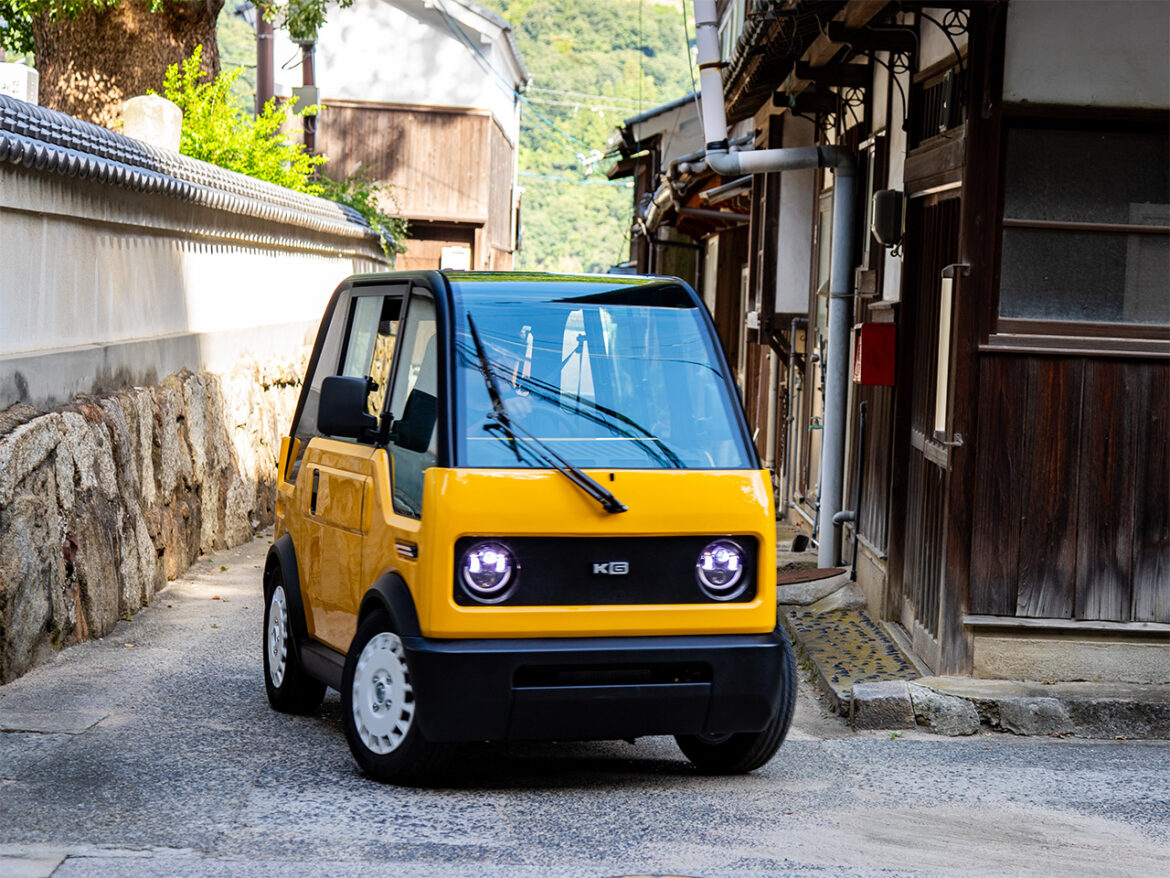Japan’s unusually narrow residential streets call for smaller-than-average vehicles – which is why pint-sized hatchbacks and boxy minivans are ubiquitous in the country. Now a tiny new motor that has yet to reach market is attracting an outsized amount of attention. Mibot, designed and built by KG Motors in Hiroshima, is an electric vehicle for one. It can travel for 100km on a single five-hour charge at speeds of up to 60km/h and comes in several colours (the cheery yellow is fetching but there’s also blue, white, ivory and grey). It can hold 45kg of luggage and be charged at home without special equipment. Where other solo vehicles prioritise compactness over comfort, Mibot has air conditioning, speakers and heated seats. And at little more than a metre wide, it navigates narrow streets with ease.
 Thousands of customers have already preordered the all-electric Mibot, which is designed and assembled in Hiroshima
Thousands of customers have already preordered the all-electric Mibot, which is designed and assembled in Hiroshima
Kazunari Kusunoki, nicknamed Kussun, started as a mechanic and parts supplier. In 2018 he launched a Youtube channel, Kussun Garage; before long, 200,000 followers were tuning in to watch him take apart and customise electric vehicles and minicars. As his audience grew, requests for advice flooded in and, along with three others, Kusunoki started working on the idea of making a mini-EV from scratch. They formed KG Motors in 2022 with Kusunoki as its CEO and set about making the concept a reality.
The start-up quickly attracted investment. It raised ¥100m (€579,000) in its pre-seed round in March 2023 and a further ¥150m (€869,000) in the next round in October that year. The lead investor is Energy & Environment Investment; another is Keylex, a Hiroshima-based parts manufacturer. A supplier to Mazda, Keylex is a key partner in realising Mibot’s unified monocoque body. By the close of funding in February 2025, KG Motors had ¥1.39bn (€8m) to work with.
Kusunoki had been thinking about compact vehicles for years. “I grew up in the city of Kure in Hiroshima, where there are a lot of narrow streets,” he says. “I always wished that there were smaller options available.” Japanese government figures show that about 70 per cent of car owners drive alone during the week. How many people really need a family saloon or SUV for their daily errands? “With the shift towards electric vehicles, I wondered whether regular-sized EVs were really good for the environment and began to think about developing a more efficient model.” The result is Mibot (short for “Minimum Mobility Robot”), designed to provide just the right level of mobility for short-distance solo travel.
Kusunoki was also spurred by a change in the law in 2020 that allowed single-seat EVs on public roads. Mibot has a price tag of just ¥1.1m (€6,400) and the advantage of sitting in a category of light vehicles that requires fewer inspections and has lower taxes than conventional cars. “With low maintenance costs and excellent energy efficiency, it reduces the burden of ownership and environmental impact,” says Kusunoki. It can also receive the latest software updates wirelessly and the design – all done in-house – is a winner.
 Mibot is designed to be practical but fun too
Mibot is designed to be practical but fun too
 At just over one metre wide, Mibot can navigate Japan’s narrow streets
At just over one metre wide, Mibot can navigate Japan’s narrow streets
Hiroshima was an obvious base for the project. “We chose this place because the founding members originally worked here, as well as for the presence of many automotive-related companies in the area,” says Kusunoki. “Also, Mibot is designed to address the pain point of limited transportation options in rural regions. It’s a product from a regional area that offers solutions to local challenges. By developing it primarily in Hiroshima, we also receive support and co-operation from the local government.”
Kusunoki’s ambition for Mibot goes beyond cars. He seeks nothing less than a revival of the dynamism of Japan’s postwar years. Mibot, he hopes, will recapture that sense of optimism and could even help to “make our society vibrant again”. The era of relentless growth might be over but demographic shifts and social change can still spur innovation.
KG Motors now employs about 60 specialists across design, autonomous driving, software development, business, marketing and more. Everyone who sees a Mibot wants one. And with 2,000 pre-orders on the books, the team is working hard to meet the deadline for the first deliveries in Japan in 2026.
The goal is to increase production capacity to up to 100,000 vehicles per year. Hiroshima will remain the base for body manufacturing and Mibot assembly, while Kusunoki hopes to eventually expand the line-up and enter international markets. The young CEO believes that Mibot has the X-factor that has held other small, low-cost solo vehicles back in the past. Most importantly, it puts the joy back into driving. “No matter how low the maintenance costs and environmental impact are,” he says, “it’s meaningless if it’s not fun to ride.”
mibot.kg-m.jp


AloJapan.com